'My childhood sweetheart took £42k from me'
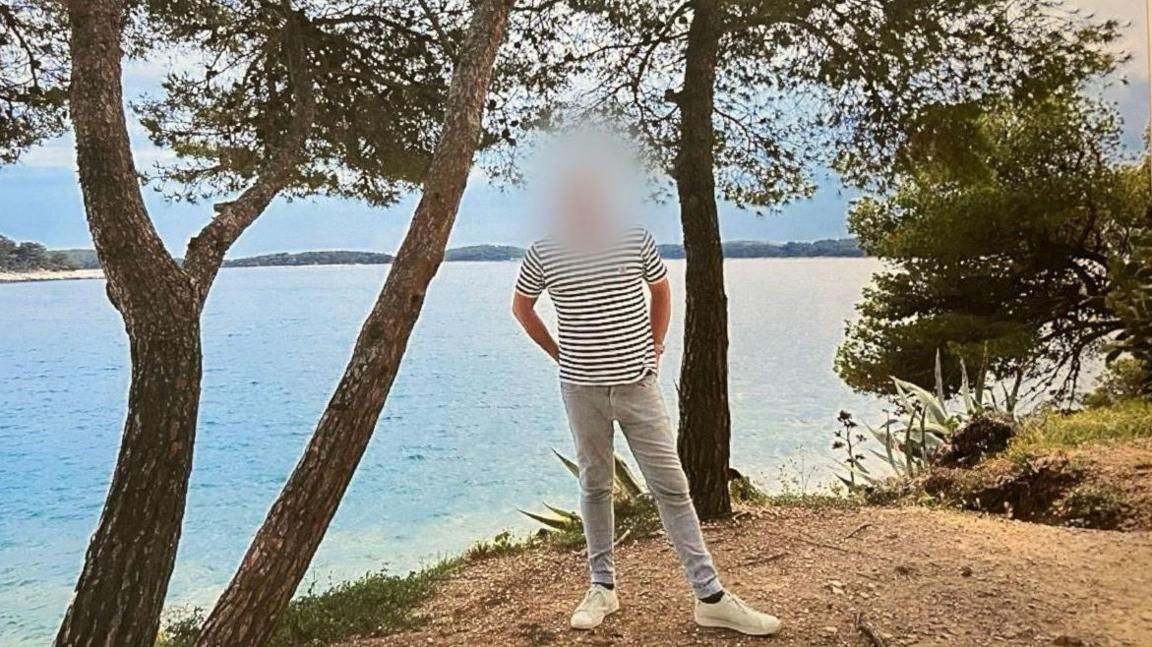
A photo of Mark, not his real name, taken on a holiday paid for by Alice
- Published
Alice thought she was rekindling a romance with a childhood sweetheart when she started a relationship with a former school friend, Mark, in 2020.
Instead, she became the victim of romance fraud and was conned into handing over £42,000 - only for police to initially dismiss her case as a civil matter.
After breaking up with Mark, she discovered he had been leading a double life with another woman and Alice's money had probably been used to fund it.
Alice, a solicitor from Shropshire, said the betrayal was something she was "really struggling to come to terms with".
What makes her case unusual is that she knew her fraudster and they had a full relationship - a lot of romance fraud takes place between people who connect online or in some cases have never even met.
Anna Rowe, who runs a charity helping victims, said a lack of understanding meant "in person" romance fraud was not always taken seriously by police forces.
"If victims are walking into a police station and those police do not understand what romance fraud is, they're making that journey more traumatic by shaming the victim or making them feel stupid," she said.
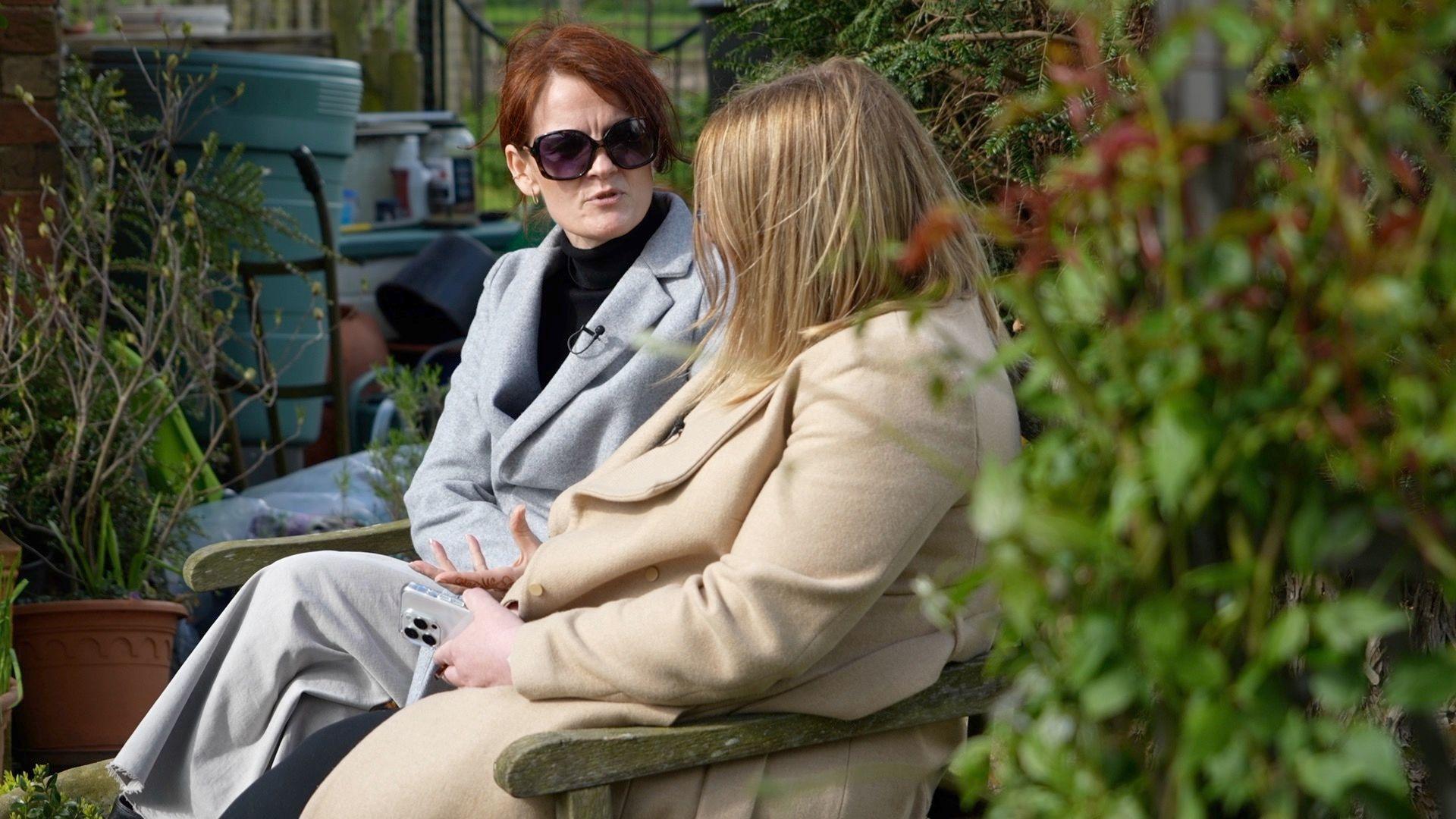
Alice (with her back to the camera) with Romance Fraud expert Anna Rowe
West Mercia Police is now investigating Alice's case after Action Fraud deemed criminal activity had taken place.
In the past four years, the force, which covers Shropshire, Herefordshire and Worcestershire, received 111 reports of romance fraud, 23 of which were investigated.
Only four investigations led to charges.
A Facebook message
Alice and Mark, not their real names, went to the same school, had a brief relationship in their 20s and had 50 mutual friends on Facebook.
For years their interactions were limited to exchanging happy birthdays.
But in October 2020, Mark began to message Alice regularly and they reconnected, sharing tastes in music and food as well as stories of the past.
"It was amazing. It was like my youth was back. We had a shared history," she said.
They met up at a pub they had visited as teenagers.
"We were catching up about people we knew and it was really comfortable," Alice said.
"I felt at home with him completely and very safe."

Alice and Mark's relationship blossomed online during the pandemic [BBC reconstruction]
Her old school friends remembered him fondly, too.
So when he first mentioned he had some bad business debts, which he blamed on the pandemic, she had no reason to doubt him.
He showed her threatening text messages he'd received and told Alice it was unsafe to visit his home.
His mental health was also suffering, he added.
"He did make it very clear that he needed help and told me all the figures involved," she told the BBC.
"I was essentially in a position where I wanted to save him."
Romance fraud victim speaks out after losing £50k
- Published9 April 2024
'He told me he'd been shot and needed money but it was a lie'
- Published25 November 2024
Dating fraudster could have scammed 'hundreds' more women
- Published13 November 2024
Their relationship progressed and he met her family and friends.
But by April 2021, Alice had lent Mark £20,000.
He promised to pay it back through the sale of his property and, as a solicitor, she had checked the financial details and confirmed in writing the loan between them.
But the sale never happened and the loan grew.
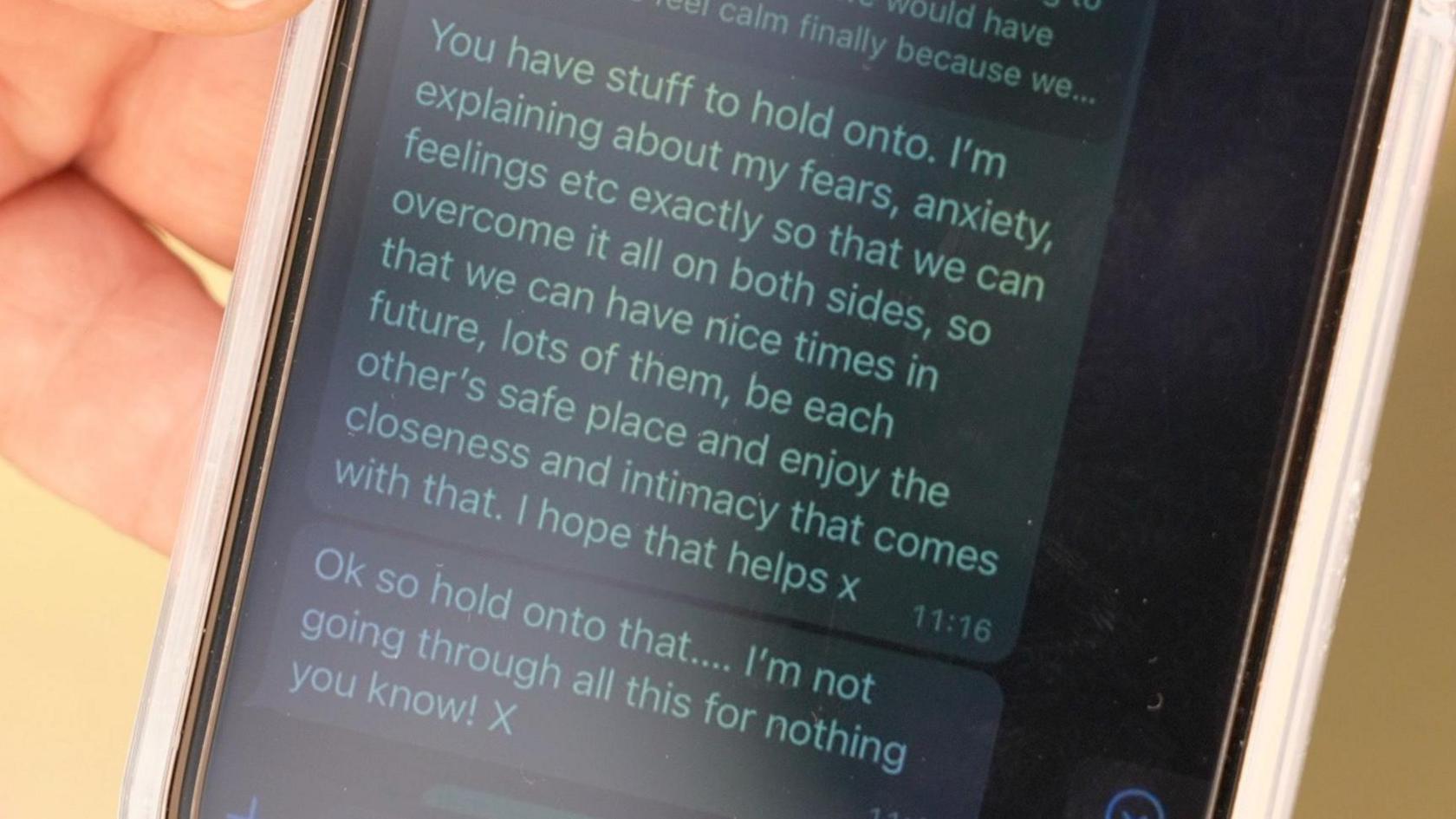
Mark sent Alice messages to explain why he needed more money
Trips to Wimbledon and Croatia - funded by Alice - ensued, and Mark was even there for her following the death of her grandfather.
But there was always something else that needed paying for.
"Everything was towards him getting him back on his feet - get his health sorted out, getting him back at work earning again, so he could stabilise his life and we could be happy," Alice said.
She made bank transfers for new clothes, glasses, a car to get to job interviews, money for psychotherapy, treatments for a skin condition and rent payments on his home.
Alice also became isolated as she defended his behaviour to family and friends.
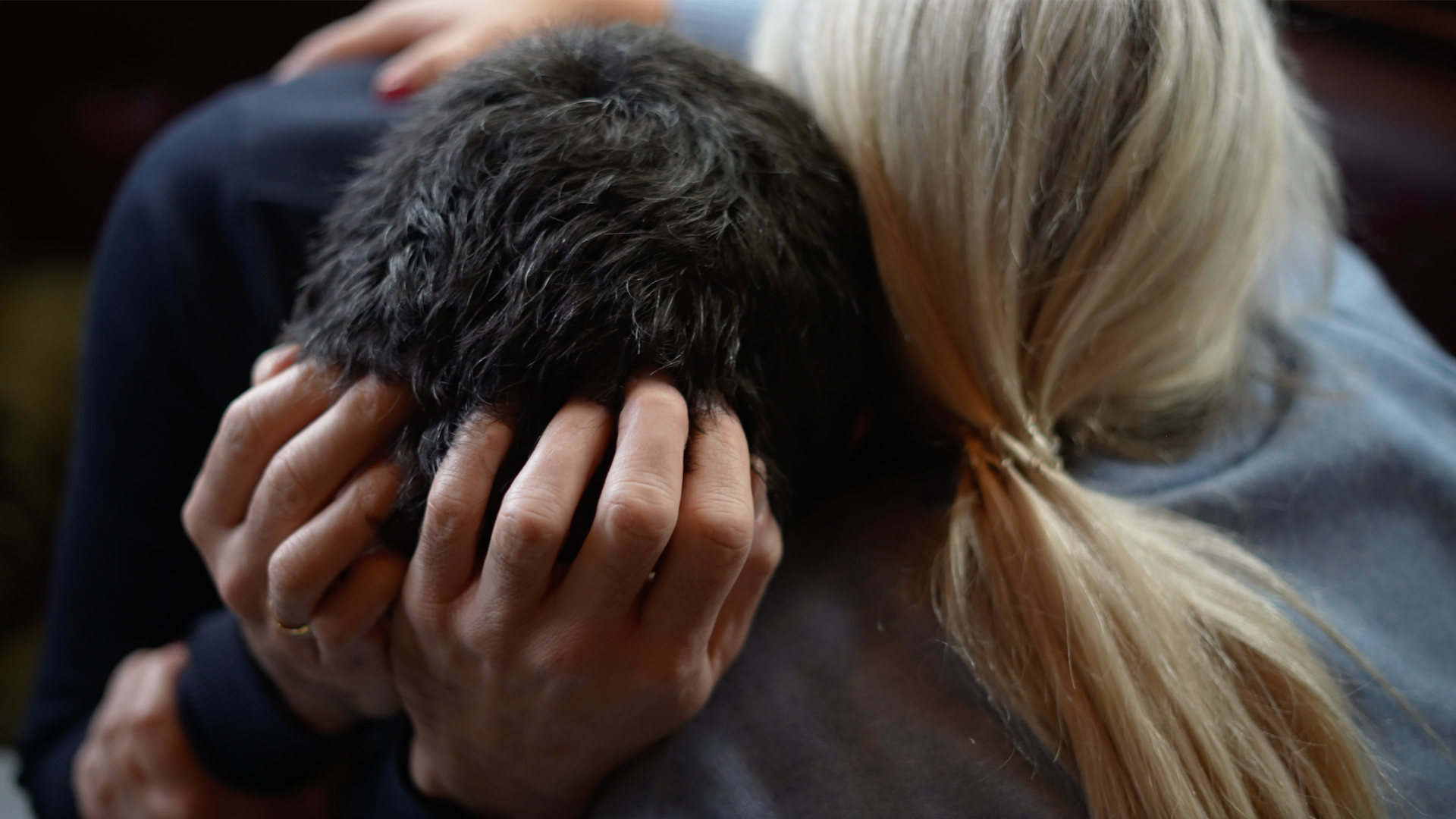
Alice said she wanted to "save" Mark [BBC reconstruction]
By October 2023, she realised their relationship - and her own finances - were in trouble.
Mark had borrowed £57,000 and only paid back £14,000.
When she finally broke up with him over the phone, he owed her £42,000.
But what came next shocked her even more.
Distraught, she drove to Mark's house for the first time.
As she arrived, a woman who she recognised as his supposed ex-partner Julie was standing on the drive.
She was holding Mark's dog, for whom Alice had paid the vet bills.
"She said 'you've got to stop coming here', like I was a stalker - that was the story she had been told," Alice said.
She told Julie she could prove their relationship but was threatened with the police.
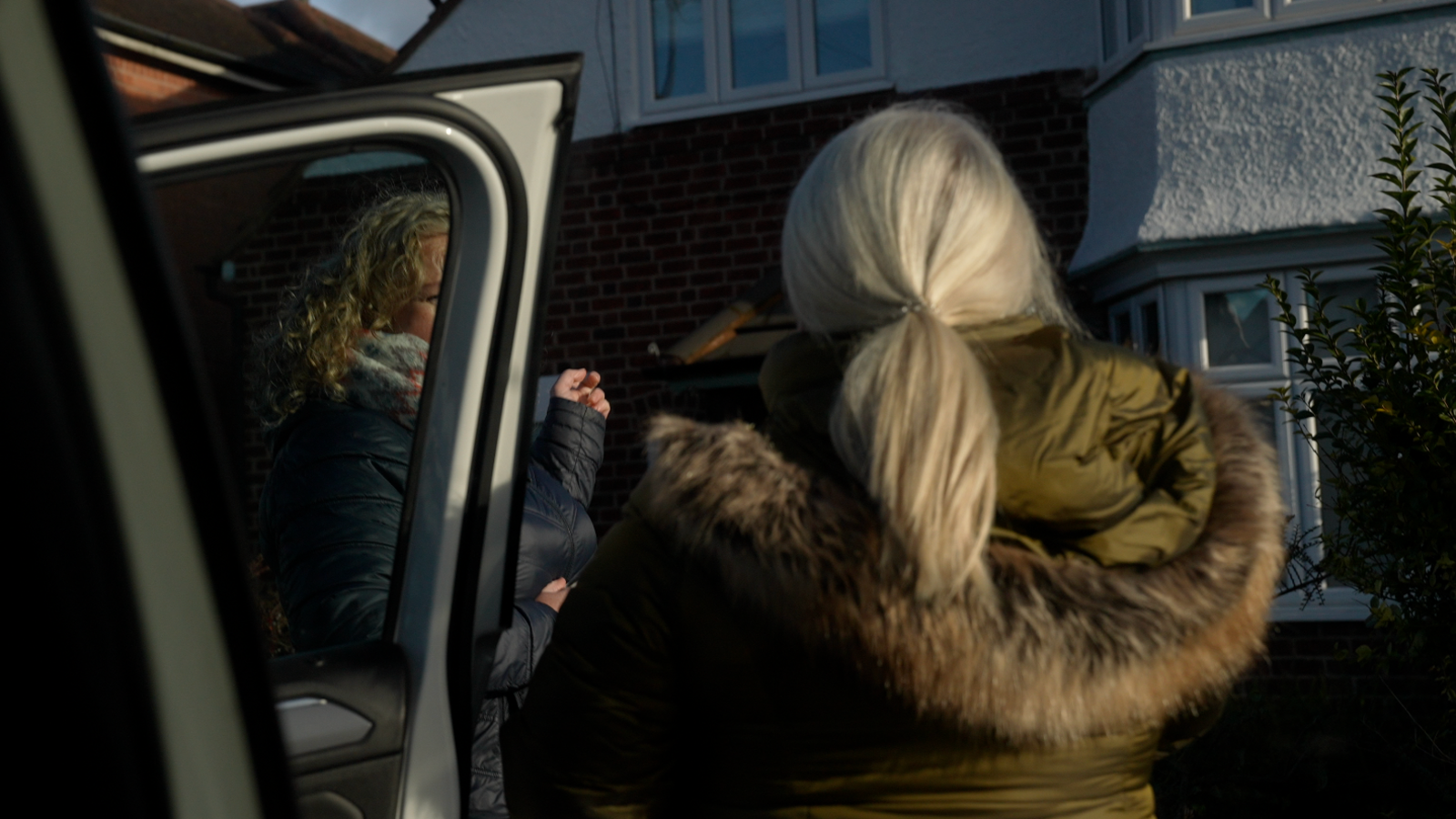
Alice's world came crashing down when she went to Mark's home [BBC reconstruction]
She met Mark one last time in a Sainsbury's car park where he told her he had cancer and had returned to his ex for comfort.
Alice approached his neighbour who confirmed he and Julie had been living there for years.
"For the whole period that he was with me, promising the world, he was living with somebody else and he was going home to that person every day," she said.
The BBC has spoken to the couple's landlady, who confirmed they left the property within days of the confrontation.
More than a year later, she said Mark owes her five months' rent.
A deliberate scam
Alice went to the police but in December 2023 was told no crime had been committed.
She turned to Love Said, a charity set up to help victims of emotional fraud.
Co-founder Anna is supporting more than 40 victims of romance fraud in the UK, many who have been turned away by the police.
With her support, Alice reported her case to Action Fraud.
"Are you saying that this man deliberately entered into a relationship with you to obtain your money and I said 'yes, I am'," she recalled being asked.
On the first anniversary of their break up this year, Alice received a bank transfer from Mark for £120.
She said he has told investigators he will pay the sum monthly, which would clear the debt in 30 years when she is 80.
Det Insp Daniel Fenn, of West Mercia's economic crime and cyber unit, said romance fraud was "extremely complex".
“West Mercia Police has highly experienced and dedicated fraud protection officers and staff who have nationally accredited training to identify, respond to and investigate romance fraud," he added.
"Resources have been increased within our team to assist with tackling and investigating complex fraud."
The force has two other cases of romance fraud under investigation.
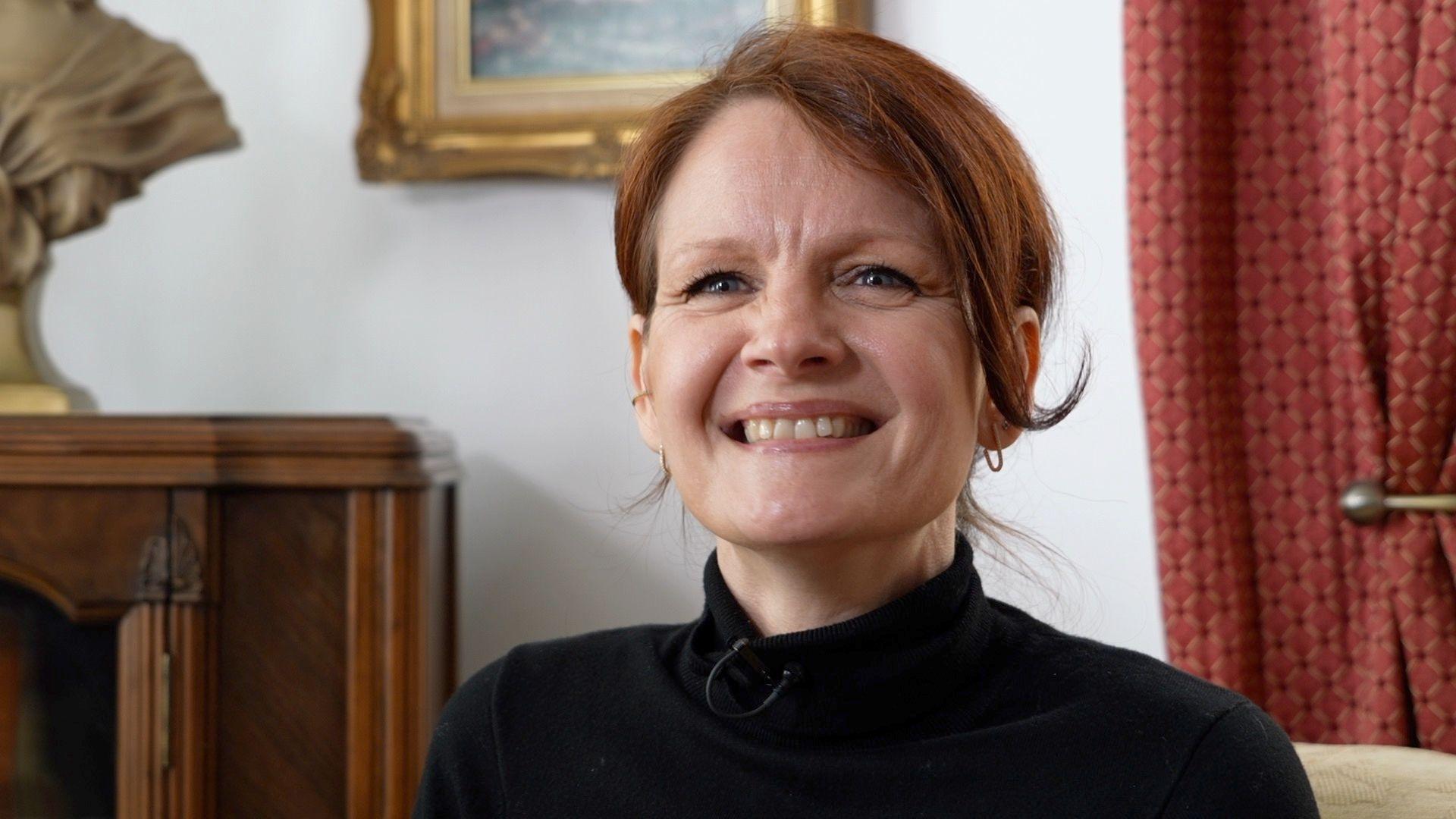
Anna Rowe is working with police forces to educate officers on romance fraud
It has now been more than four years since Alice and Mark began dating and she said she felt no closer to closure.
"The money, I can make back," she said.
"But the betrayal of somebody opening you up into your most vulnerable state, and then betraying you, stealing from you and lying to you, so you were never on the same page, is something I'm really struggling to come to terms with."
Coercive control
Love Said is working with police forces to help with cases like Alice's.
Police can pursue criminality under "fraud by misrepresentation; where the relationship itself is a deceit for financial gain, or, coercive control and financial abuse legislation".
"Hopefully we can start to see a shift as police become more aware and there's more understanding about how to investigate," Anna said.
"When you've had your innermost feelings expertly manipulated by someone, trusting yourself again is probably the hardest thing to do.
"Victims blame themselves so much - they really don't need blame from anyone else."
Get in touch
Tell us which stories we should cover in Shropshire
Follow BBC Shropshire on BBC Sounds, Facebook, external, X, external and Instagram, external.
Related topics
- Published13 November 2024

- Published25 September 2024
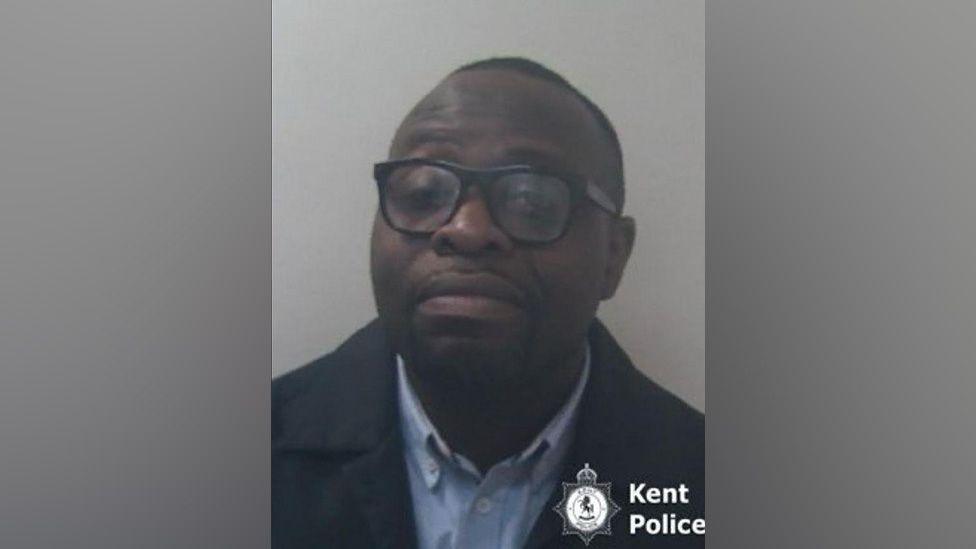
- Published9 April 2024
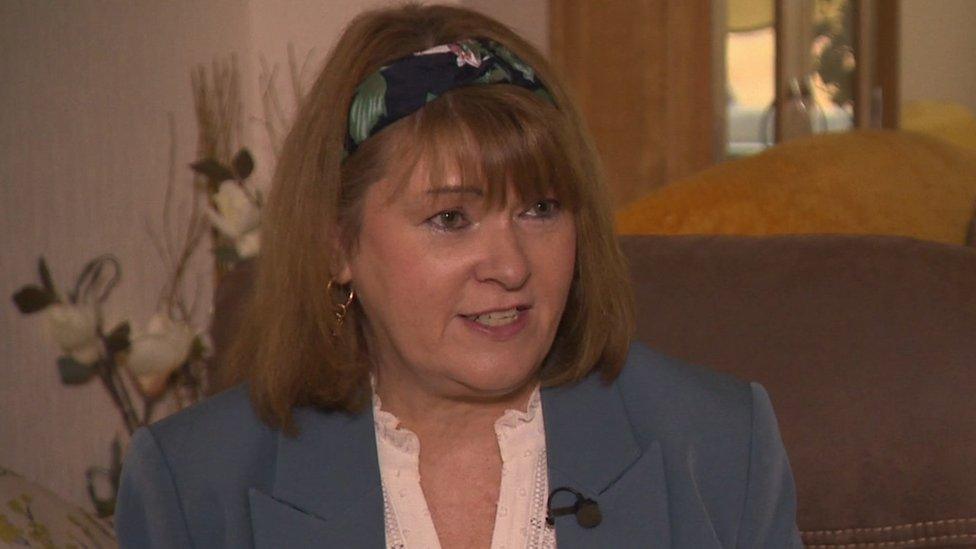
- Published27 September 2024
